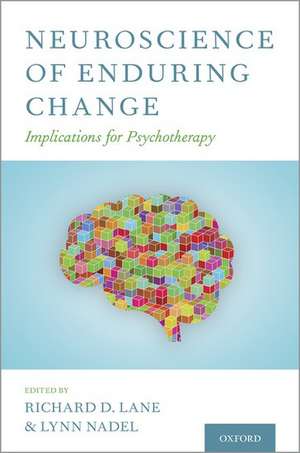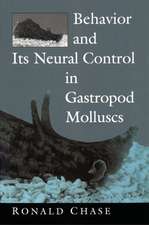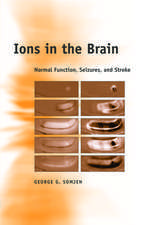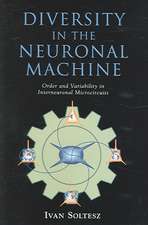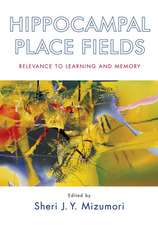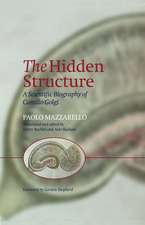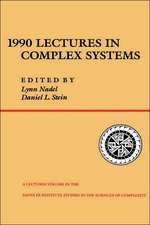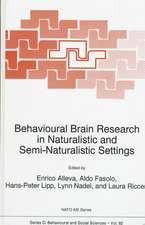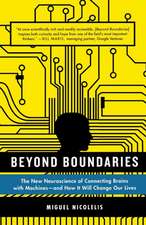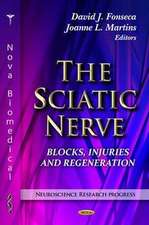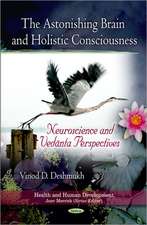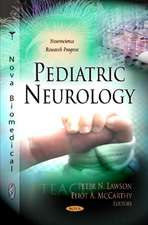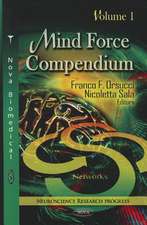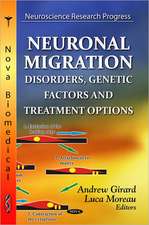Neuroscience of Enduring Change: Implications for Psychotherapy
Editat de Richard D. Lane, Lynn Nadelen Limba Engleză Hardback – 5 iun 2020
Preț: 604.98 lei
Preț vechi: 828.96 lei
-27% Nou
Puncte Express: 907
Preț estimativ în valută:
115.80€ • 125.83$ • 97.33£
115.80€ • 125.83$ • 97.33£
Carte tipărită la comandă
Livrare economică 10-16 aprilie
Preluare comenzi: 021 569.72.76
Specificații
ISBN-13: 9780190881511
ISBN-10: 0190881518
Pagini: 504
Dimensiuni: 236 x 165 x 36 mm
Greutate: 0.89 kg
Editura: Oxford University Press
Colecția OUP USA
Locul publicării:New York, United States
ISBN-10: 0190881518
Pagini: 504
Dimensiuni: 236 x 165 x 36 mm
Greutate: 0.89 kg
Editura: Oxford University Press
Colecția OUP USA
Locul publicării:New York, United States
Recenzii
Understanding the therapy change process has fascinated clinicians and researchers for decades. This volume provides an important contribution to this understanding by linking basic research on neurology and emotion to clinical practice. Linking these findings to the contributions of differing approaches to therapy, the authors address a most important question, namely 'What can be an agreed-upon core or consensus in psychotherapy?'
Psychotherapy is often about change, and typically happens with little thought about the underlying neural underpinnings; Neuroscience of Enduring Change fills this important void. In this marvelous collection, Lane and Nadel have gathered together some of the finest minds to offer their perspectives on memory and emotion, from both a basic science and a clinical point of view. In these high-quality chapters, readers are treated to an inspirational approach for thinking about how and why people change for the better during mental health treatment.
I strongly recommend this book that presents a reformulation of biopsychosocial change in psychotherapy. It describes a suitably complex computational neuro-circuitries perspective as well as an exciting effort at psychotherapy integration. The authors synthesize concepts about how techniques from various schools all affect memory activation and reconsolidating, a form of plasticity.
Psychotherapy is a learning process, a way of changing mind and behavior by forming new memories. With contributions by basic scientists and clinicians, The Neuroscience of Enduring Change builds on the science of memory to offer valuable new insights into how the effects of therapy might be made more persistent.
Psychotherapy is often about change, and typically happens with little thought about the underlying neural underpinnings; Neuroscience of Enduring Change fills this important void. In this marvelous collection, Lane and Nadel have gathered together some of the finest minds to offer their perspectives on memory and emotion, from both a basic science and a clinical point of view. In these high-quality chapters, readers are treated to an inspirational approach for thinking about how and why people change for the better during mental health treatment.
I strongly recommend this book that presents a reformulation of biopsychosocial change in psychotherapy. It describes a suitably complex computational neuro-circuitries perspective as well as an exciting effort at psychotherapy integration. The authors synthesize concepts about how techniques from various schools all affect memory activation and reconsolidating, a form of plasticity.
Psychotherapy is a learning process, a way of changing mind and behavior by forming new memories. With contributions by basic scientists and clinicians, The Neuroscience of Enduring Change builds on the science of memory to offer valuable new insights into how the effects of therapy might be made more persistent.
Notă biografică
Richard D. Lane is a clinical psychiatrist and psychotherapist trained in cognitive neuroscience and emotion research whose research has focused on brain mechanisms of emotion and emotion regulation, emotional awareness, neurovisceral integration and the mechanisms by which emotion influences susceptibility to sudden cardiac death. His background in cognitive and affective neuroscience is now being integrated with his ongoing experience as a therapist and psychotherapy educator.Lynn Nadel is a contributor to the literature on the hippocampus and its role in spatial memory, cognition, and consolidation, in humans and other animals. An active and influential contributor to the field for about 40 years who has advanced two influential theories of hippocampal function: Cognitive Map Theory and Multiple Trace Theory.
